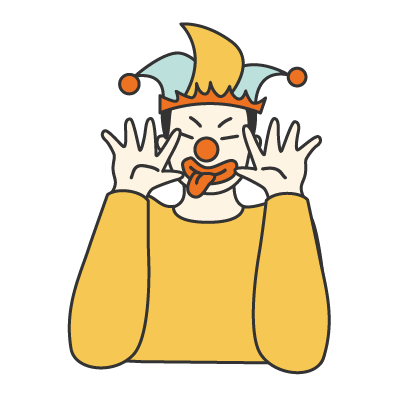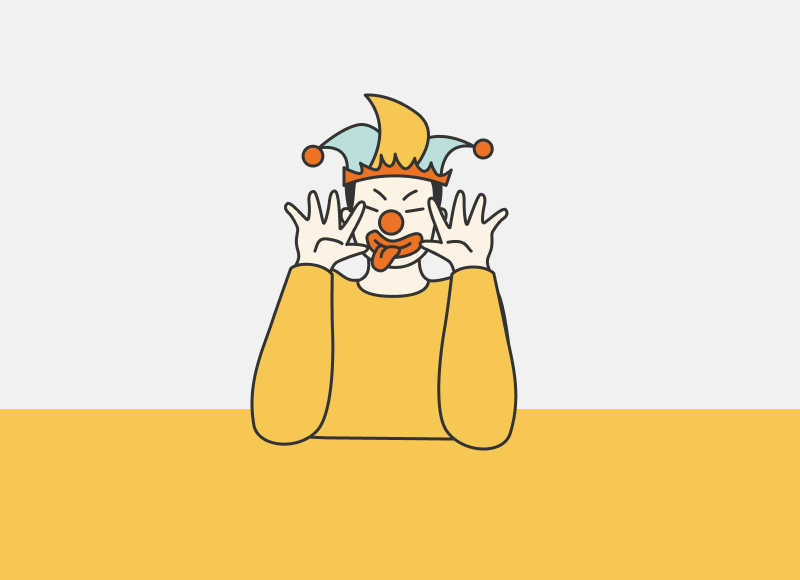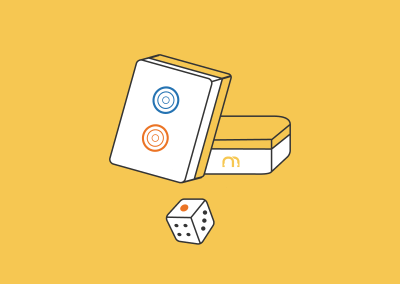Chinese Comedy | 5 Funny & Simple Chinese Jokes to Learn Mandarin and Culture
Here are five simple Chinese jokes to enjoy. Share with your friends and improve your understanding of the language and culture.
Chinese Comedy
01. Xiangsheng, or Crosstalk Comedy

xiàngsheng
comic crosstalk; sketch
Here are some key facts about this genre:
- Roots back to the 19th century: Xiangsheng has a rich history in China evolving over many years to become one of the most beloved forms of comedy.
- Originating from Northern China: This comedic style originated in the northern regions of China, particularly in Beijing, and has since become a national phenomenon.
- Combines 4 main techniques: The performance style of Xiangsheng includes speaking, imitating, teasing and singing. These techniques make it a highly engaging and interactive form of comedy.
02. Chinese Skits
Chinese skits (小品 xiǎopǐn) focus on everyday life and relatable humor. These mini dramas highlight social situations, misunderstandings and humorous mishaps, making them a popular form of entertainment in China.

xiǎopǐn
sketch; skit
lit. “little-article”
- Gained popularity in the 1980s: Chinese skits rose to prominence during the 1980s and became an integral part of Chinese comedy.
- Became a staple of the CCTV Spring Festival Gala: Chinese skits have become a must see feature of the CCTV Spring Festival Gala – China’s most watched TV program.
- Often feature famous actors and comedians: The genre often showcases well-known actors and comedians, adding star power and humor to the performances.
03. Chinese Stand-Up Comedy

qīngkǒu
stand-up comedy
lit. “tasty and refreshing”
5 Funny and Simple Jokes in Chinese

xiàohua
joke
lit. “laugh-talk”
Now let’s enjoy some simple and funny Chinese jokes to lighten up your day:
01. Vampires 🧛
Xīxuèguǐ xǐhuan chī là ma?
Do vampires like spicy food?
B: 不喜欢,因为他们喜欢不辣的。
Bù xǐhuan, yīnwèi tāmen xǐhuan bú là de.
No, because they like “not spicy.”
FAQs about Chinese Comedy and Jokes
Chinese comedy includes various forms like Xiangsheng, Chinese Skits and Chinese Stand-Up Comedy. These genres focus on humor derived from daily life wordplay and observational comedy.
2. What is Xiangsheng Crosstalk Comedy in Chinese culture?
Xiangsheng (相声 xiàngsheng) is a traditional form of Chinese comedy that involves humorous dialogues between two performers. It often uses wordplay, imitations and teasing to entertain audiences.
3. How does Chinese humor play on wordplay?
Chinese humor often relies on wordplay (谐音 xiéyīn) where words with similar sounds are used to create puns.
4. Why are food related jokes popular in Chinese comedy?
Food-related jokes are popular in Chinese comedy because food is an integral part of Chinese culture. Many jokes play on the meanings of food related words, creating humor around daily life.
5. What is the significance of “Xiaopin” (Chinese Skits) in Chinese comedy?
Xiaopin (小品) is a form of Chinese skit that portrays everyday situations with humorous twists. It often addresses social issues and misunderstandings making it relatable to audiences. Xiaopin became widely popular because of the China’s Spring Festival Gala.
6. How does Chinese stand up comedy differ from Western stand up?
Chinese stand up comedy (清口 qīngkǒu) is a newer form influenced by Western stand up. Shanghai style stand-up features observational humor about Shanghai’s fast-paced life, while more traditional forms use wordplay and social commentary.
7. How can I learn Chinese through humor and jokes?
Learning Chinese through humor especially by understanding wordplay is an effective way to grasp the language. By paying attention to puns and jokes you can improve your vocabulary and comprehension while also getting a glimpse into Chinese culture.
8. Can I use Chinese jokes to improve my Chinese pronunciation?
Yes, Chinese jokes often include wordplay that highlights similar sounds or tones making them a fun and practical way to practice Chinese pronunciation. Listening to the punchlines and mimicking the tone will help reinforce your speaking skills.
10. Why are Chinese jokes often based on wordplay and tone differences?
Chinese jokes are often based on wordplay and tone differences because the Chinese language has many homophones meaning words that sound alike but have different meanings. These similarities create opportunities for humor especially in jokes like those involving puns.










